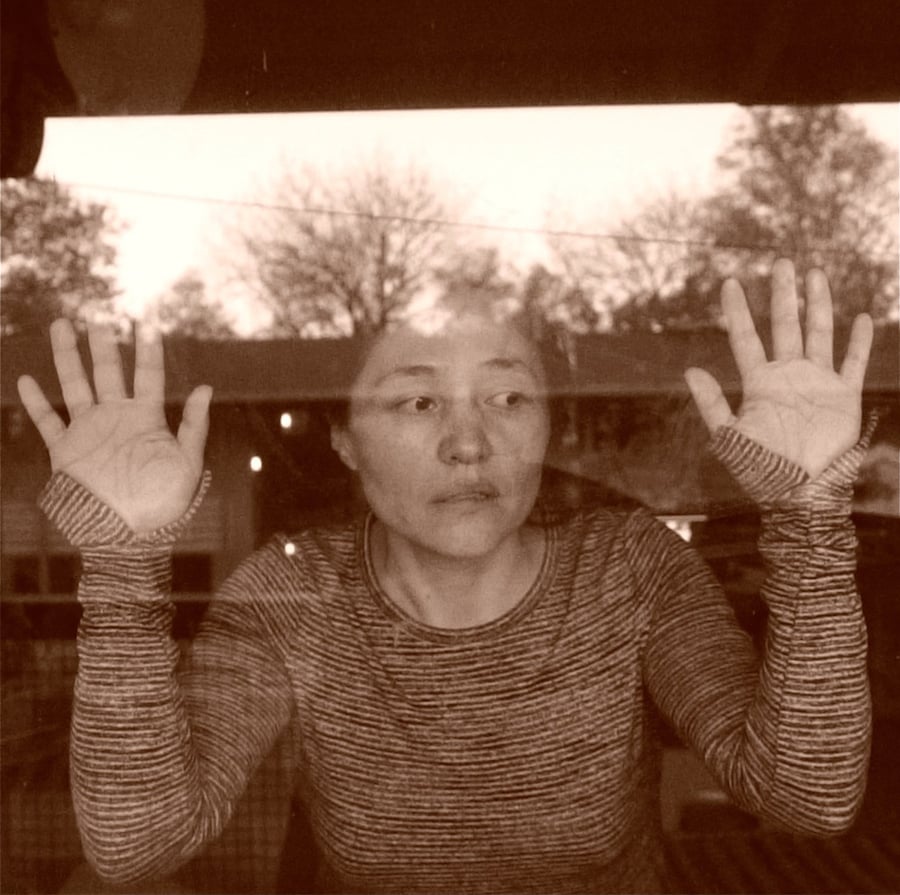“AntigoneNOW” radically retells an ancient tale of isolation and grief
Courtesy of University of California, Davis
AntigoneNOW features performances from an all-female cast. Here, actress Regina Maria Gutierrez Bermudez looks out the window as Antigone.
November 12, 2020
When co-directors Margaret Laurena Kemp and Sinéad Rushe began working on a contemporary retelling of Sophocles’ tragic play “Antigone,” they had a live performance in mind. But COVID-19 foiled those plans.
So Laurena Kemp, a University of California, Davis professor, and Rushe, a senior lecturer at the Royal Central School of Speech and Drama in London, embarked upon a seven-week journey of rehearsing, recording and editing to create “AntigoneNOW.” The 20-minute performance film, originally produced by the UC Davis Department of Theatre and Dance, features an all-female and multilingual cast, and will be available on demand Nov. 12-19 through a video link courtesy of the Wirtz Center for the Performing Arts.
Devised from poet Seamus Heaney’s translation, “AntigoneNOW” tells the story of Antigone, a rebellious and impassioned woman who defies her uncle to bury her disgraced brother.
“In the light of COVID and lockdown, all these people are not able to have funerals and gather together with their community to mourn their dead or be with their dying in hospital,” Rushe said. “The central image of the play, of this dead body that’s not allowed to be touched and not allowed to be buried, and the kind of isolation having been faced with that — it started to become clear that that’s what we needed to speak to.”
Unlike the original play, “AntigoneNOW” features a chorus of Antigones — a spin on the traditional Greek chorus — played by 15 different actors from around the world, including Singapore, Japan and Chile.
The decision to center Antigone in her own story made its themes of isolation, grief and mourning all the more prevalent, Rushe said. The switch to a digital platform further allowed for a greater sense of autonomy.
“Because every actor became their own storyteller, they were given the freedom and the charge to say, ‘This is Antigone from my point of view,’” Laurena Kemp said.
During the rehearsal process, Laurena Kemp invited Communication Prof. Roger Ellis to help choreograph the piece. Ellis asked actors to look through windows, film in tight spaces and move their eyes in a scanning motion to emphasize Antigone’s isolation.
Since rehearsals took place entirely over Zoom, Ellis said they hoped to question the definition of “ensemble,” expand beyond people’s sense of place and encompass a multitude of experiences.
“The idea was to bring this idea of the chorus,” Laurena Kemp said. “Let us see all of the Antigones and see them in movement, rather than language.”
Following the rehearsal process, actors filmed themselves saying lines and completing tasks like running and washing their hands. The actors then uploaded their videos to a shared drive, which the stage management team organized for Laurena Kemp and Rushe to review. Overall, Laurena Kemp and Rushe sorted through over 800 video files when editing.
Laurena Kemp said the team hopes the film prompts audience members to consider how they can heal a broken world filled with grief. It’s also important to consider the people who don’t have access to the tools for healing, she said.
“I feel a certain happiness that, in this time that was so difficult, we managed to really make something that we are proud of,” Rushe said. “That’s one of the beauties of theatre. When it works, we contact a deep connection with ourselves, with each other, with an audience and with this moment in time.”
Email: [email protected]
Twitter: @sarahaie_
Related stories:
— “The Trojan Women” features virtual set where actors perform from their individual residencies
— Wirtz Center’s present ‘Wine in the Wilderness’ to celebrate Black womanhood


